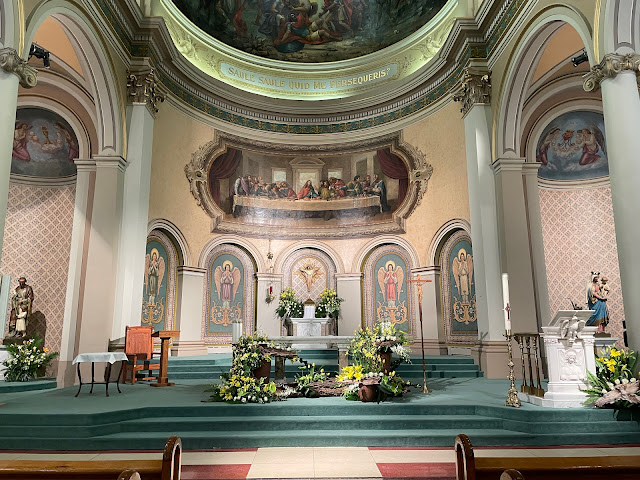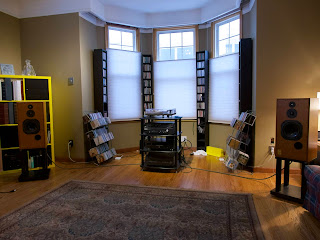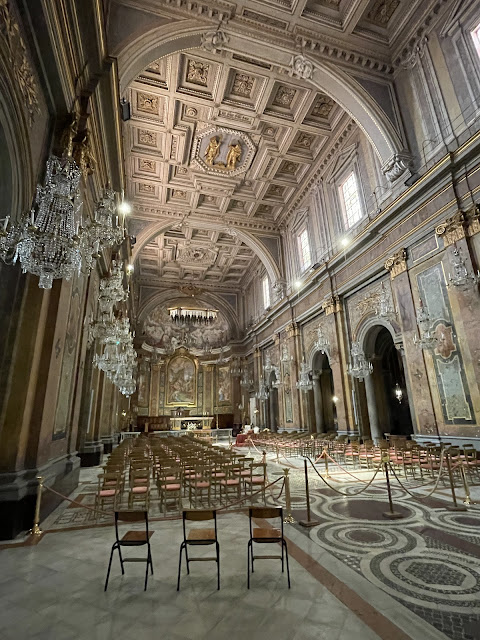Bards and Prophets
As I return to the blog after a long hiatus, I should provide an update. I am now at a new parish. I became the pastor of St. Paul's Minor Basilica in downtown Toronto in October of 2021. As priests, when we move we not only change where we are living but it is also like changing your job. We have to get to know a whole new community, adjust ourselves and then begin to discern what may be helpful in this new situation. Coming out of the pandemic slowly has made this transition stretch over a longer time. After taking a holiday as many have this summer I am now back at the parish working on present and future projects.
Through all of this I have not only continued to listen to music but, if anything, it has increased.One recent reflection has been that we all have a deep need of poetry. That might sound odd, because I'm sure there are not very many poets making a living at it these days. But there are! Once we enter the realm of music it is a dramatically different story. Music grabs our attention.
That poetic mindset leads us out of ourselves. Even sometimes what we might call entertainment is evocative of what is happening inside. That's really important.
We can use music to placate ourselves, but music that takes us to new places is attractive as well.
In the title I have referred to bards and prophets. They do have some similarities. They are both keen observers and are able to reflect truth in some way. We call Shakespeare "the Bard". His plays capture many of the subtleties of human affairs and often have a moral element, speaking of the human search for justice in the face of a hazardous world. Biblical prophets deliver the Word of God cutting through the fog to set aright the Lord's people. The attraction of the prophet is clarity while the danger is our penchant for fundamentalism. We'd somehow like to be in the chorus of "I told you so." Jesus speaks of the dangers of false prophets.
Nonetheless, the indispensable quality we need is the persistent development of a spiritual imagination -- a healthy one mind you. Without that healthy imagination our ability to put into practice a living faith is less vital. Music can help us if we are a little selective.
I also think other artistic disciplines can be equally fruitful. In the last few years I have been paying particular attention to Impressionist artists, for example. I have found at least in some of them an evocative quality that somehow illustrates the sacredness of the lives of their subjects and reveals the reflected dignity of the artist. For me, Monet is especially luminous. When I saw his art up close at the Musee D'Orsay in Paris I felt acutely the power of the paint. No photo can capture it, especially the whites. His most famous works portraying the lily ponds he developed at Giverny are really fuzzy but they show us a complete universe as they surround us in their 360 degree wonder in the Orangerie. They are a kind of microcosm.
This is what art does. It places us within the universe and reveals to us a universe. This awe at the visible or the audible is a kind of sacrament of what we can apprehend with our senses.
We naturally gravitate toward poets and prophets who can give us a kind of icon or window through which to stare at a fuller reality.
While we might wrestle with how to communicate our faith in the present age we shouldn't forget to "sing" our faith in the diverse poetic languages that are out there. It is there that we may well touch the deepest part of our relationship of faith and perhaps free it from the restrictions of our desires to contain it and codify it for our own satisfaction.


